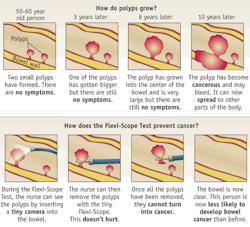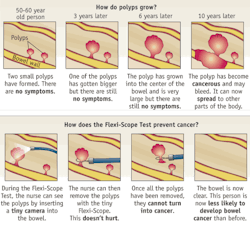According to the American Society of Plastic Surgeons (ASPS), 12.5 million cosmetic plastic surgery procedures were performed in the U.S. in 2009–down 1% from 2008 and up 69% since 2000. "The current economic climate will likely not have an impact on long-term growth," says ASPS president Michael McGuire, M.D.
The largest contributor to the increase over the past decade has been minimally invasive procedures, which increased 1% since 2008 (to nearly 11 million in 2009), and 99% since 2000. Among the top five such procedures in 2009 was laser hair removal, with 893,000 occurrences. (The most common minimally invasive procedure was administration of Botulinum toxin type A, with 4.8 million.)
Laser hair removal also topped the list, at 23%, for those planning a minimally invasive procedure within the next 12 months.
Advanced lasers enabling ophthalmology progress
New trends in ophthalmology include more advanced surgery, such as corneal transplants and treatments for glaucoma–and biophotonics are enabling these advances. "Wavelengths in the region of 1.6 μm are less prone to scattering and are enabling surgeries previously not possible," explains Eric Mottay, president and CEO of Amplitude Systems (Pessac, France).
Colonoscopy could save thousands more lives
No other bowel cancer screening technique has ever been shown to prevent the disease," said Professor Wendy Atkin from the Department of Surgery and Cancer at Imperial College London, referring to an optics-based test. Atkin led a study, published in the April 28 issue of The Lancet (doi:10.1016/S0140-6736(10)60551-X), revealing that a five-minute screening test could substantially cut the risk of developing colon (bowel) cancer and save thousands of lives from what is the U.K.'s second biggest cancer killer.
The 16-year study showed that a single flexible sigmoidoscopy examination in men and women between the ages of 55 and 64 reduced the incidence of colon cancer by a third, compared with a control group who had usual care–the fecal occult blood test, which looks for traces of blood in stools. The endoscopy approach (which the researchers call the Flexi-Scope Test) was particularly effective in the lower bowel, where it halved incidence of the disease. Over the course of the study, colon cancer mortality was reduced by 43% in the group that had the test compared with the control group. The randomized trial followed 170,432 people–of whom 40,674 underwent a single exam–over an average period of 11 years.
In the U.S., where colorectal cancer is the second leading cause of cancer deaths, the rate of screening is lower than for other types of cancer, despite evidence and guidelines supporting the value of testing. So a National Institutes of Health state-of-the-science panel convened recently to identify ways to further increase the use and quality of colorectal cancer screening.
The panel found that the most important relevant factors are insurance coverage and access to a regular healthcare provider. If efforts to increase utilization are successful, there will be a greater demand for screening services. The panel's draft statement is available at http://consensus.nih.gov.
About the Author

Barbara Gefvert
Editor-in-Chief, BioOptics World (2008-2020)
Barbara G. Gefvert has been a science and technology editor and writer since 1987, and served as editor in chief on multiple publications, including Sensors magazine for nearly a decade.

